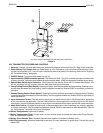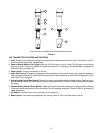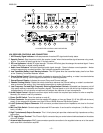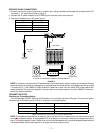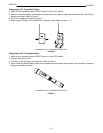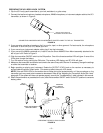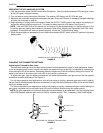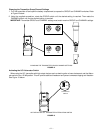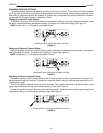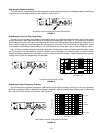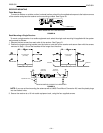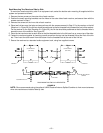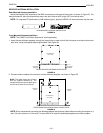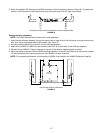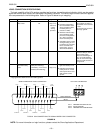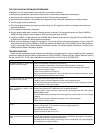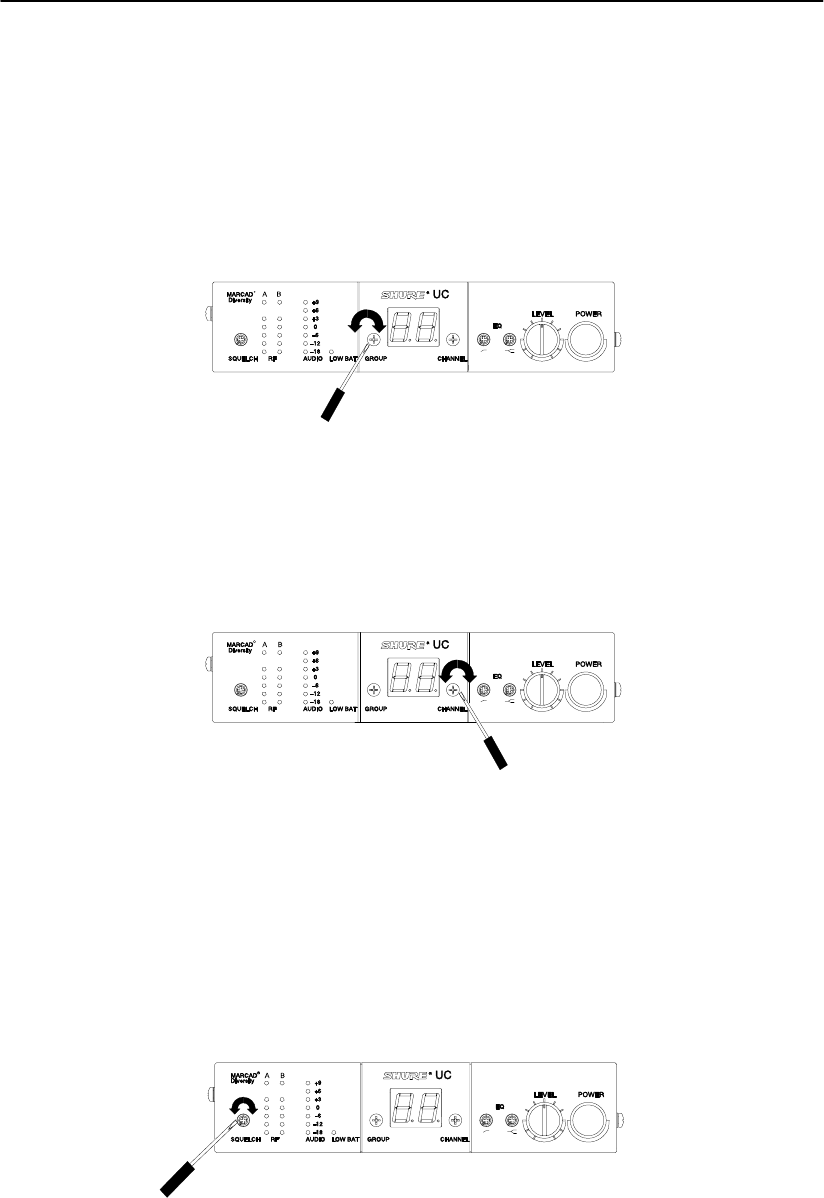
ENGLISH
ENGLISH
– 12 –
CHANGING RECEIVER SETTINGS
The receiver display identifies the operating frequency by Group and Channel. The character on the left represents
the Group setting and the character on the right represents the Channel setting. Groups are preconfigured sets of
frequencies or channels that work well together. A complete list of compatible Groups and Channels is included in
the separate UC Wireless Frequency Compatibility Guide.
Changing the Receiver Group Setting
To advance the receiver Group setting, rotate the Group switch clockwise, using the supplied screwdriver. Rotate
the switch counterclockwise to decrease the setting. The display will indicate the change. See Figure 14.
NOTE: A dash mark (––) indicates an unavailable Group.
CHANGING THE UC4 RECEIVER GROUP SETTING
FIGURE 14
Changing the Receiver Channel Setting
Using the supplied screwdriver, rotate the Channel switch clockwise to increase the setting. Rotate it counterclock-
wise to decrease the setting. The display will indicate the change. See Figure 15.
NOTE: A dash mark (––) indicates an unavailable Channel.
CHANGING THE UC4 RECEIVER CHANNEL SETTING
FIGURE 15
Adjusting the Receiver Squelch Setting
The receiver squelch control is factory preset at the 12 o’clock position for optimum performance. Normally, no fur-
ther adjustment is required. However, it is possible to adjust the squelch control to improve either signal quality or in-
crease system range.
To raise the squelch threshold, rotate the control clockwise. This causes the receiver to demand a higher quality
signal (less noise before muting), but it reduces operating range. See Figure 16.
To lower the squelch threshold, rotate the control counterclockwise. This allows a lower quality signal through (more
noise before muting), but it extends the operating range. See Figure 16.
ADJUSTING THE UC4 RECEIVER SQUELCH SETTING
FIGURE 16



